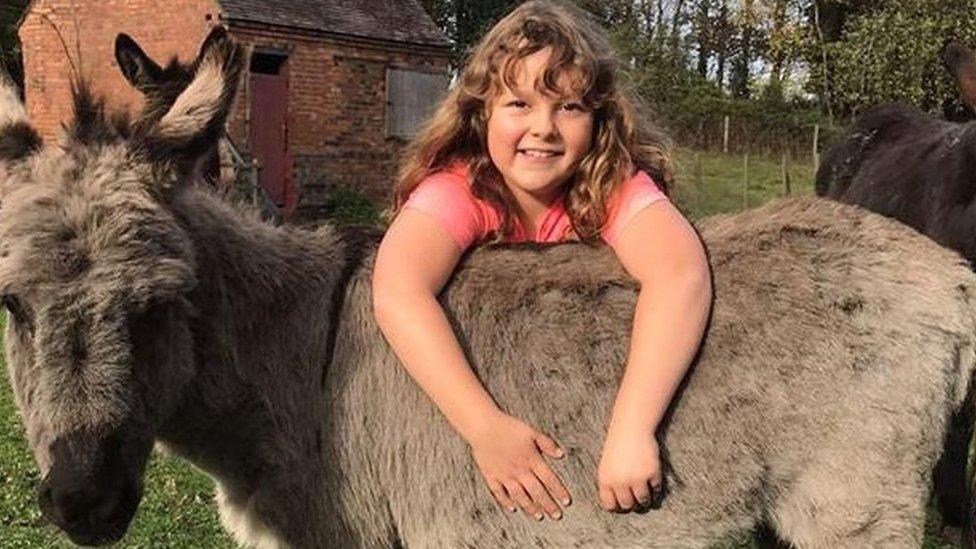Rabies victim who died after cat bite named as Omar Zouhri
- Published
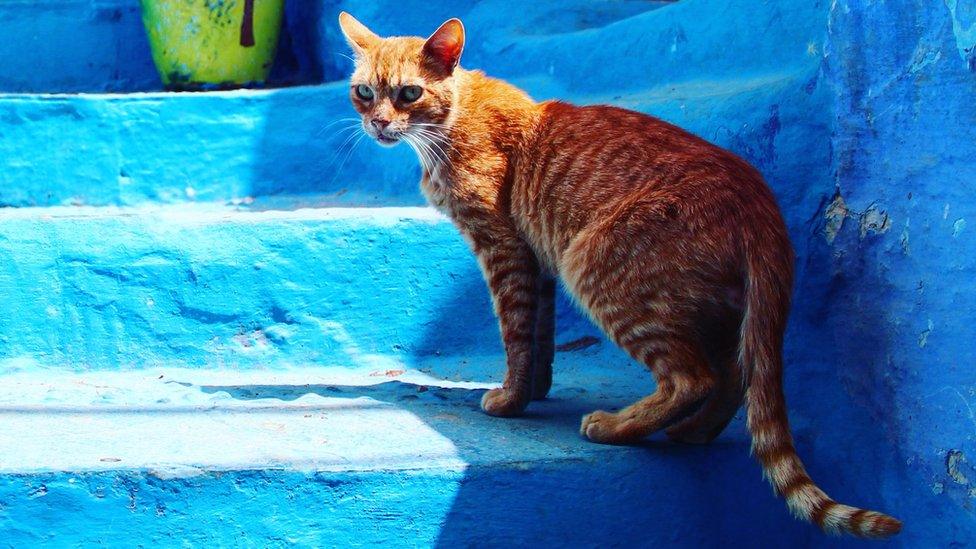
Morocco is one of 139 countries where the risk of contracting rabies is high, the government says
A man who died after contracting rabies while on holiday has been named locally as Omar Zouhri.
Mr Zouhri, from Aylesbury, Buckinghamshire, contracted the disease after being bitten by cat in Morocco.
Dr Tina Kenny, medical director of Buckinghamshire Healthcare NHS Trust, confirmed that he passed away at the John Radcliffe Hospital in Oxford.
She said an internal review would be carried out "given that deaths from rabies are so rare in this country".
In a statement, Dr Kenny offered her "sincere condolences" to Mr Zouhri's family and urged them to "get in touch" if they had any "concerns about the care they received at our hospital".
She said Mr Zouhri attended Stoke Mandeville Hospital before being "transferred to the John Radcliffe Hospital in Oxford as the regional referral centre for infectious diseases".
"Given that deaths from rabies are so rare in this country, we have already begun our own internal review of Mr Zouhri's care and understand that an inquest into his death will be opened in due course," she added.
Five Britons became infected from rabies between 2000 and 2017 after "animal exposures abroad".
According to the World Health Organization, external, the disease occurs in more than 150 countries and causes tens of thousands of deaths every year, mainly in Asia and Africa.
In up to 99% of cases, domestic dogs are responsible for the transmission of the virus to humans.
Public Health England (PHE) reminded travellers to avoid touching animals, external in rabies-affected countries.

What is rabies?
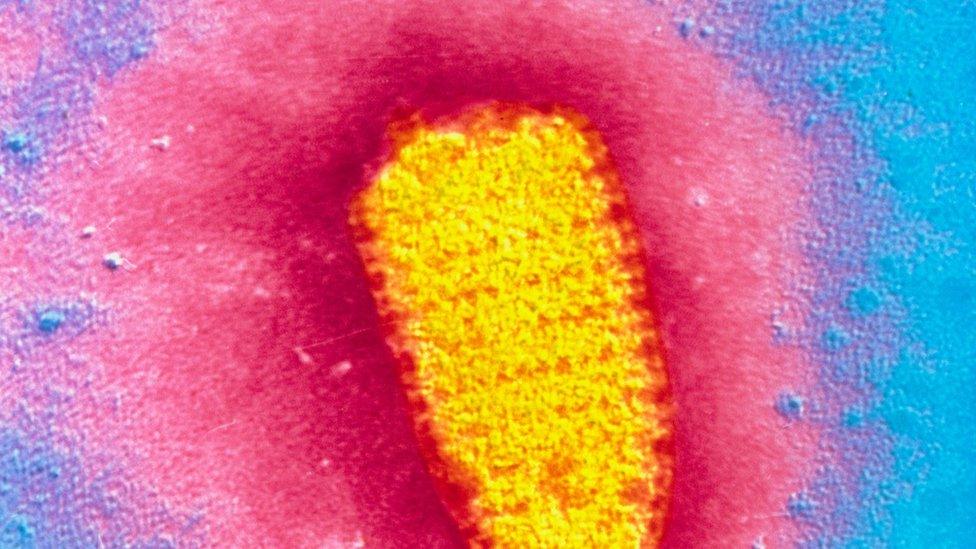
Electron micrograph of the rabies virus
Initial symptoms can include anxiety, headaches and fever
As the disease progresses, there may be hallucinations and respiratory failure
Spasms of the muscles used for swallowing make it difficult for the patient to drink
The incubation period between being infected and showing symptoms is between three and 12 weeks
If you are bitten, scratched or licked by an animal you must wash the wound or site of exposure with plenty of soap and water and seek medical advice without delay
Once symptoms have developed, rabies is almost always fatal
Before symptoms develop, rabies can be treated with a course of vaccine - this is "extremely effective" when given promptly after a bite - along with rabies immunoglobulin if required
Every year, more than 15m people worldwide receive a post-bite vaccination and this is estimated to prevent hundreds of thousands of deaths
But effective treatment for rabies is not readily available to those in need
Pre-exposure immunisation is recommended for people in certain high-risk occupations and for travellers to rabies-affected, remote areas
Source: Public Health England/World Health Organization
- Published12 November 2018
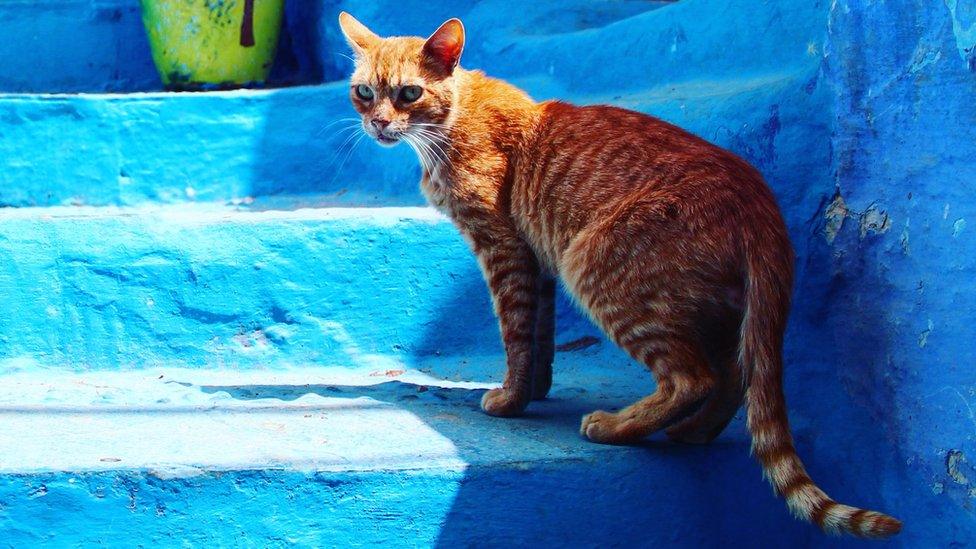
- Published14 December 2017
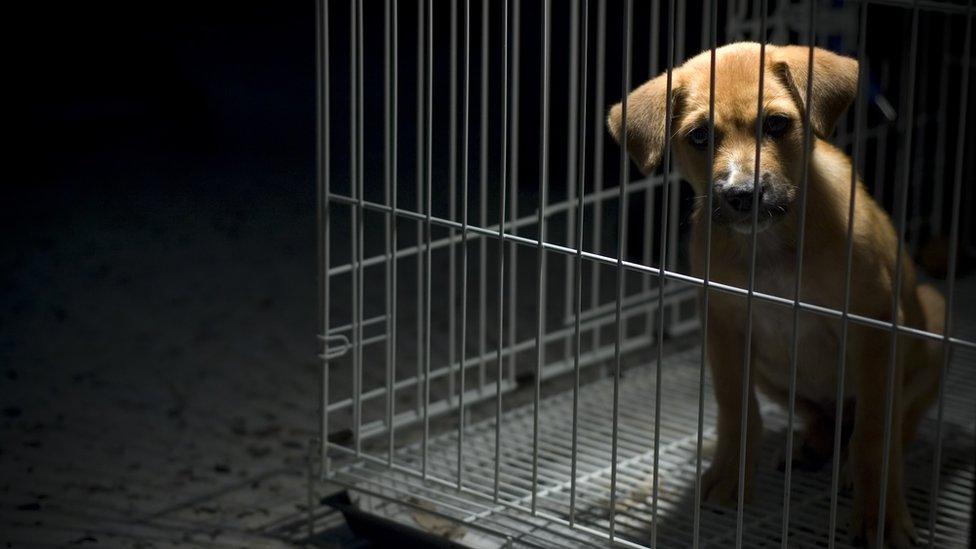
- Published3 May 2018
